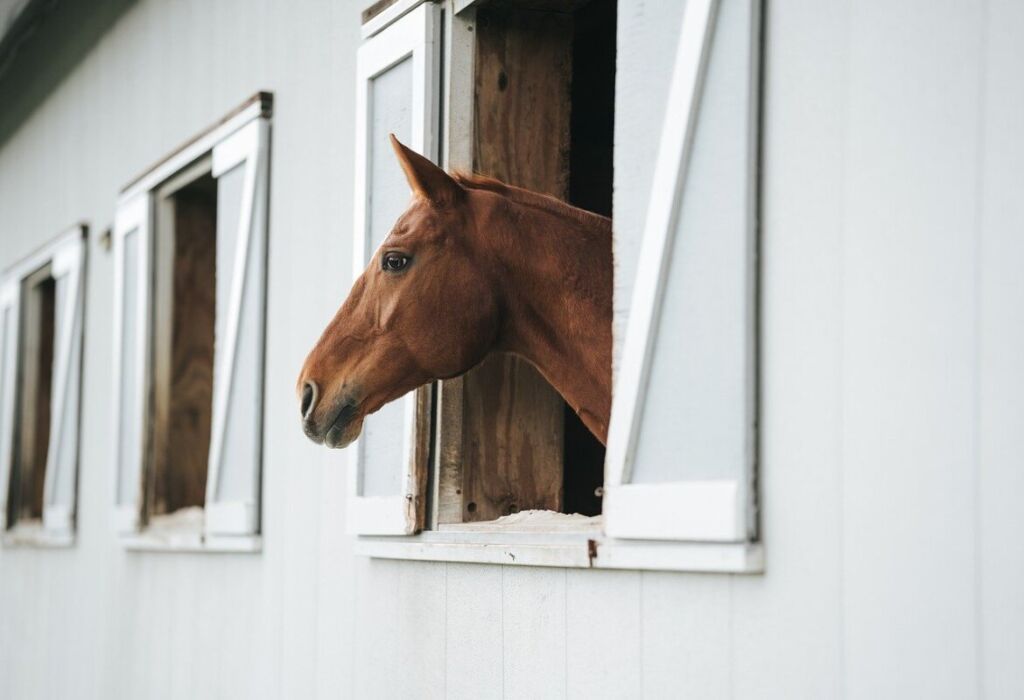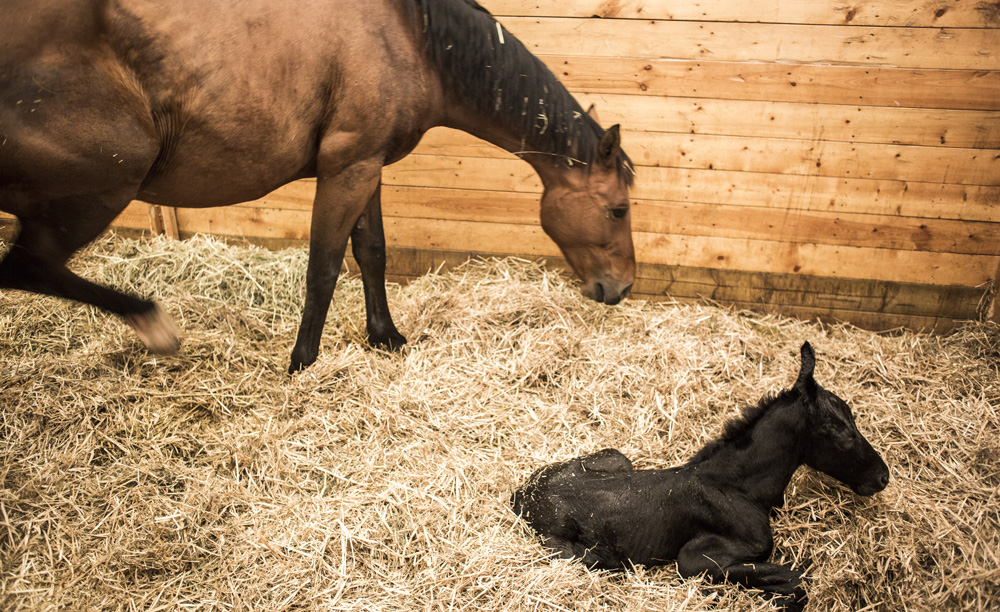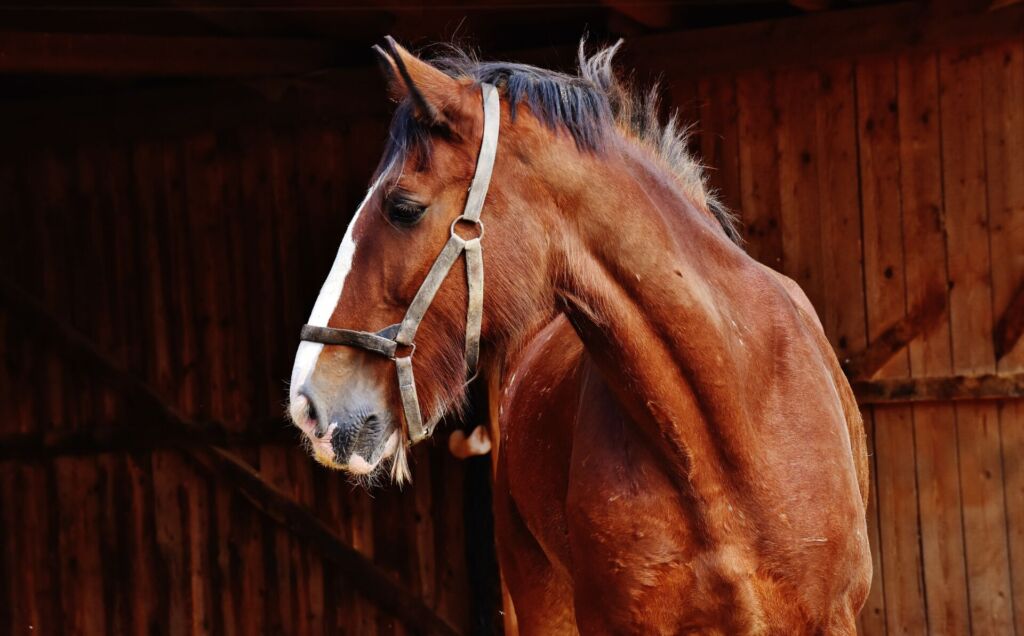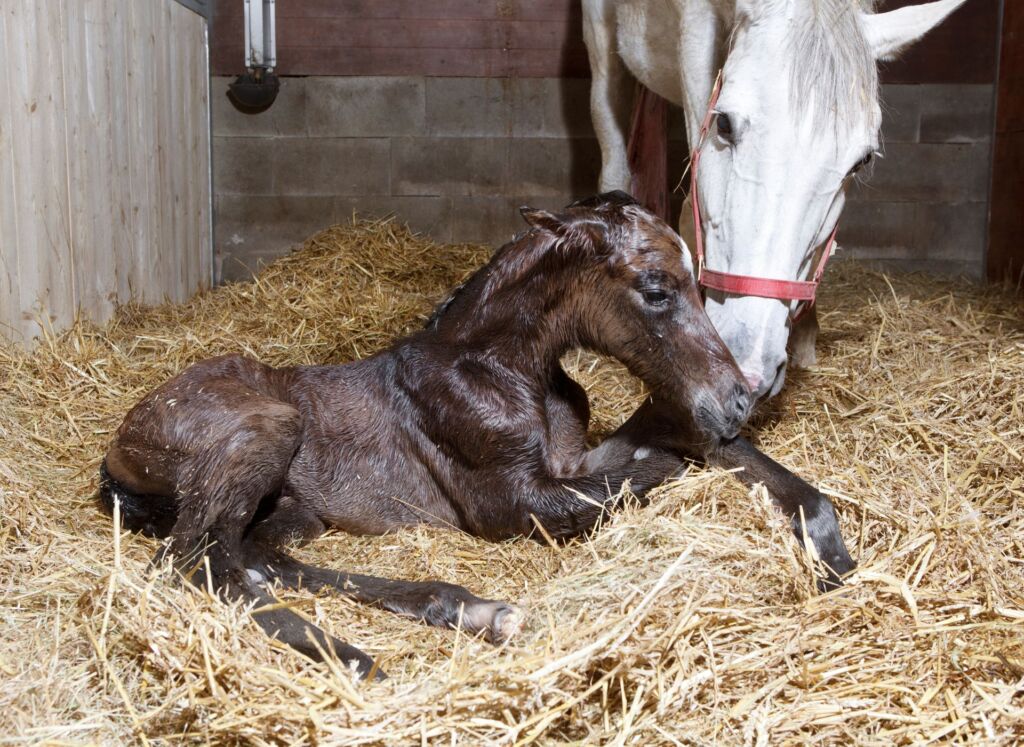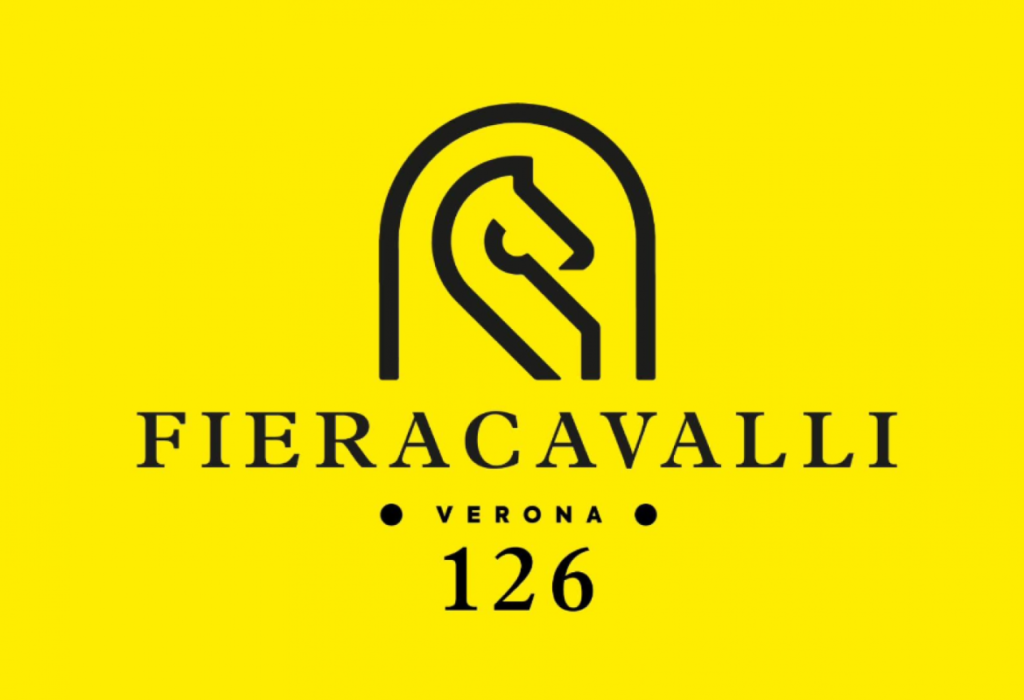The feeding of the pregnant mare is a crucial aspect of managing the health and welfare of horses. During pregnancy, it is indeed essential to provide mares with the nutrients they need to support fetal growth and ensure a healthy gestation. Among the various components of the equine diet, hay plays a central role-it is a food that should never be missing from horses’ diets. In this article, we will explore the importance of hay and go over how it should be fed to pregnant mares.
The key role of hay
Hay is an optimal source of fiber and, partly because of this, plays many essential roles in the nutrition of the pregnant mare. Going into more detail, it is useful to know that fiber helps specimens digest better. During pregnancy, the mare’s digestive tract may undergo changes due to fetal weight, and fiber helps prevent gastrointestinal problems.
Another benefit offered by hay, which proves to be important in the feeding of the pregnant mare, is its contribution to weight control. Pregnant mares may have a greater tendency to gain weight, and this can lead to health problems. Hay provides calories in a controlled manner, helping to maintain ideal body weight.
Feeding the pregnant mare: not only fiber
Obviously, hay provides not only a good amount of fiber, but also protein, vitamins and minerals. These nutrients contribute to the healthy growth and development of the fetus and the overall health of the pregnant mare. There is also to be said that the process of chewing hay helps to keep the horse’s teeth healthy, which is crucial for the proper assimilation of food: pregnant mares need teeth in good condition to meet the dietary challenges associated with pregnancy.
Of course, to get the necessary nutrition, hay is not enough, and it will be important to vary the pregnant mare’s diet by following the advice of her veterinarian. A well-balanced diet may include concentrated feeds specifically for pregnant horses, which provide additional protein, vitamins and minerals to ensure a complete diet. The exact amount of concentrate feed should be determined according to the mare’s specific needs.
The quantity and quality of hay
The amount of hay to be fed to a pregnant mare depends on several factors, such as:
- size of the specimen,
- level of activity,
- stage of pregnancy,
- quality of the hay itself.
In general, the feeding of the pregnant mare should include access to a significant amount of high-quality hay. This means that it should be available all day in modo che la cavalla possa mangiarlo secondo le sue esigenze.
The quality of the hay is crucial: it should be fresh, free of dust and mold, and have a pleasant smell.
It must be rich in fiber and checked frequently to ensure there is no contamination or foreign matter.

Feeding the pregnant mare: attention to individual needs
It is important to note that each mare may have slightly different dietary needs. This is precisely why it is always advisable to work in collaboration with a veterinarian or nutritionistequine to establish a specific feeding plan for the pregnant mare. The professional will take into account every detail-from her health status to her size to the condition of her pregnancy.
The veterinarian will be able to provide support up to the time of the foal’s birth, at which he or she can be present through the use of a handy equine birthing reporting device (SCOPRI DI PIU’ QUI). Keep following our blog to get more tips on feeding the pregnant mare and beyond.



